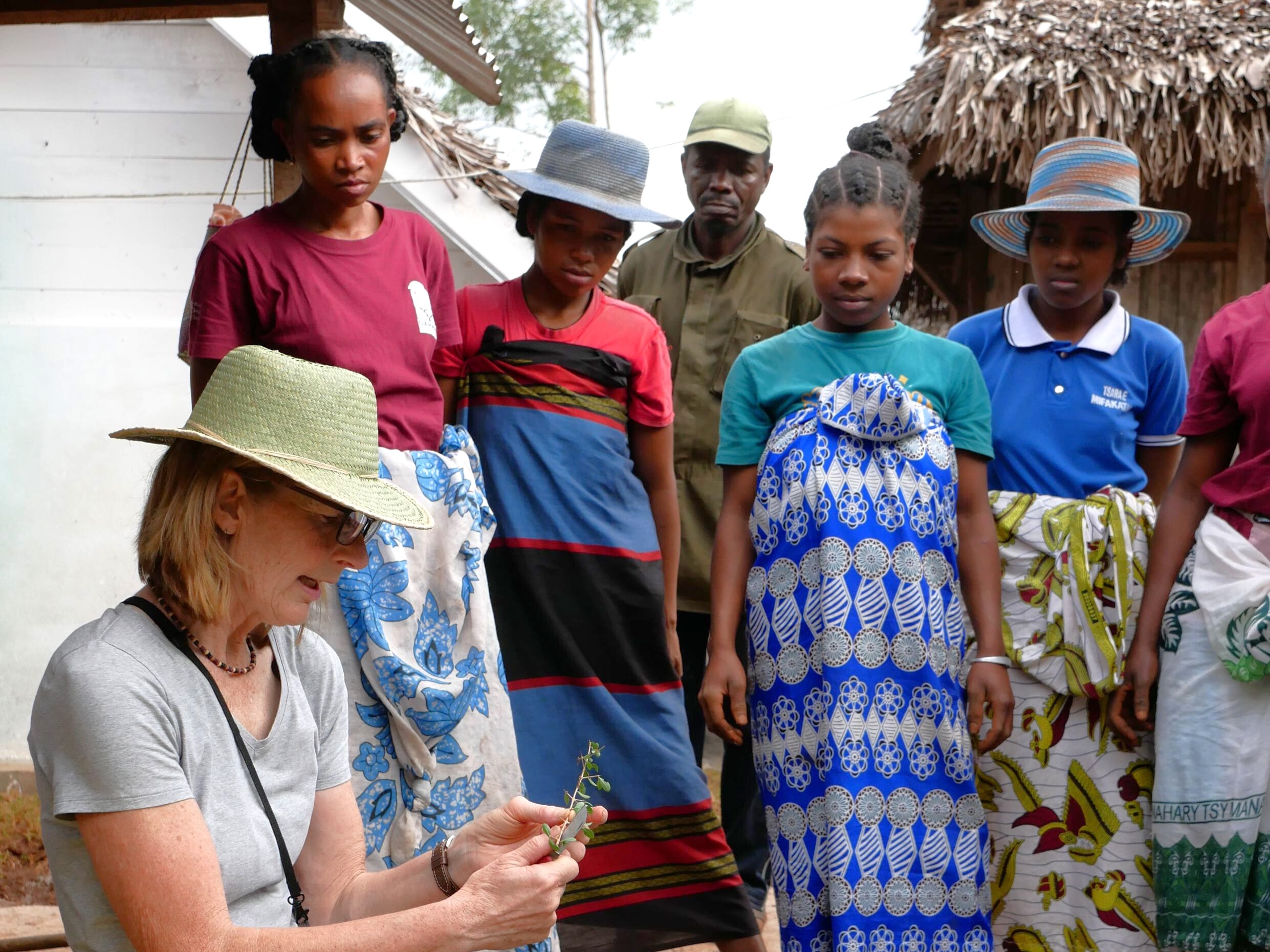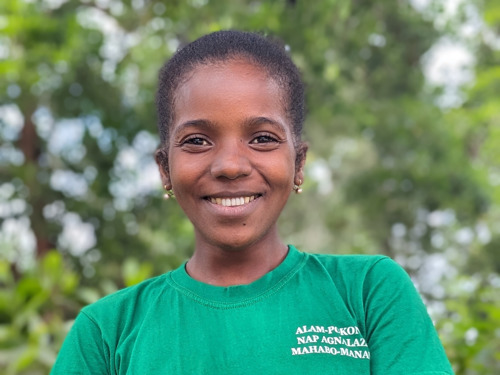Improving farming and conserving forests

Agnalazaha community members at a training session. Credit - Claire Raisin.
A baby nursery within a tree nursery in Madagascar
Loss of crops to free-ranging livestock has a huge impact on the livelihoods of subsistence farmers in Madagascar. Often these farmers try to protect their crops using fences of various kinds but determined beasts can knock over these structures and access the desirable forage within. Annually, the farmers living around the Agnalazaha Forest Protected Area, in Southeast Madagascar, used to collect tens of thousands of poles of native trees from a small and important fragment of rare littoral forest and insert them vertically and closely spaced in an attempt to protect their crops. However, despite their efforts and the associated degradation of the forest, a survey carried out as part of the project revealed that all farmers lost crops and 50% lost nearly all of their crops.
Staff of Chester Zoo and Missouri Botanical Garden (MBG) joined with Agnalazaha’s farmers to conceive and implement a new approach to protecting crops that would provide improved outcomes both for the farmers and for the forest. The method proposed was laid hedges.
Over 3 years, this partnership enabled 81 farming families to install nearly 15 km of hedges thereby reducing the number of stems taken from the protected area by 83%. The hedges were made using a mixture of Gliricidia and Jatropha stems (whose stems root when pushed into the ground) and young plants of an array of native tree species. In total 21,000 young native trees were planted along the hedge lines. Although the propagation of trees does not require special physical strength, tree nurseries in Madagascar are normally staffed by men.
 Ratia, one of the women involved in the project. Credit - Claire Raisin.
Ratia, one of the women involved in the project. Credit - Claire Raisin.
Our project was unusual in that this compensated work was completed not just by women, but by ten young unmarried mothers, who are a vulnerable group in rural Madagascar. To build their capacity, horticultural training was provided by experienced horticulturalists from Chester Zoo and MBG, and to liberate the mothers to work efficiently, a nursery for their children was provided in one corner of the tree nursery. The nursery mothers enjoyed the work while being able to keep a close eye on their children. They were able to access improved livelihoods, and at the conclusion of the project, five of the ten continued to produce tree seedlings for sale for their personal benefit. All good outcomes, made even better because the anticipated kick-back from local men who had been denied access to this employment opportunity did not materialise.
Even at the very start of the project our interviews revealed that a vast majority of local men appreciated the initiative. Perhaps we were lucky, but in this case at least, empowering women was not arduous at all; some understanding, a little thought, and acceptance of reasonable compromise, led to positive outcomes all round.
Written by Chris Birkinshaw, Fidy Ratovoson, Claire Raisin, Scott Wilson, and Elianne Raharisoa. For more information on this Darwin Initiative Main project 28-025, led by North of England Zoological Society (Chester Zoo), please click here.

 Back
Back